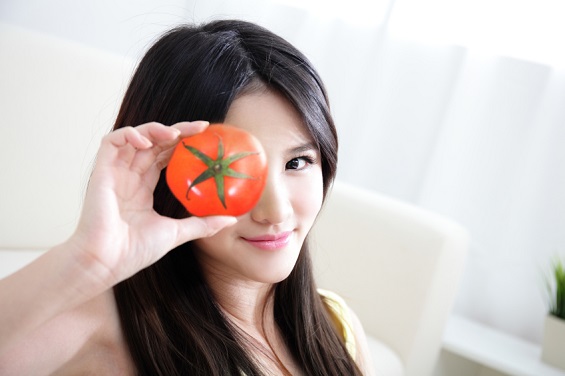
“Tomatoes are complicated, man.”
That’s the intriguing first sentence of one especially interesting article about tomatoes.
Why so complicated you ask? “The first thing to understand is that tomatoes are complicated fruits with a complicated flavor profile… As Harold McGee writes in his book On Food and Cooking: The Science and Lore of the Kitchen, ripe tomatoes have an unusually large amount of savory glutamic acid (as much as 0.3% of their weight), as well as aromatic sulfur compounds. These two compounds—glutamic acid and sulfur—are more common in meat than in fruits or vegetables, and so when some people smell them, they associate them with meat.”
What Dr. McGee is talking about, of course, is the umami flavor that comes from glutamic acid. Tomatoes are indeed loaded with savory goodness, but not all tomatoes taste the same, because the riper the tomato, the tastier it is. Tomatoes left to ripen on the vine are documented to have more umami content than tomatoes that are picked green and then gas-ripened. According to a Chemistry World article “Secret of Tasty Tomatoes Revealed,” tomatoes left to ripen naturally develop more nutrients and so have greater umami content. That author states, ’We suspect there is a real advantage in letting your tomato come to full ripening versus picking it green….”
Inquiring minds will want to check out this chart that illustrates the glutamate content of tomatoes as they ripen.
For more scoop on the deliciousness of tomatoes and tomato products, please read these MSGdish blogs: “The Surprising Benefits of Tomatoes” and “You Say Tomato, I Say Tomahto. Either Way, Tomatoes Are Scrumptious!”
Of course, I would be remiss in not mentioning how tasty the juice of the tomato is, either alone on an airplane trip or as part of an adult beverage.
Cheers! And as I ponder what tomato dishes I’m going to prepare this week – tomatoes are so delicious this time of year – let me share this quote with which I wholeheartedly agree:
“A tomato may be a fruit, but it is a singular fruit. A savory fruit. A fruit that has ambitions far beyond the ambitions of other fruits.” – E. Lockhart

